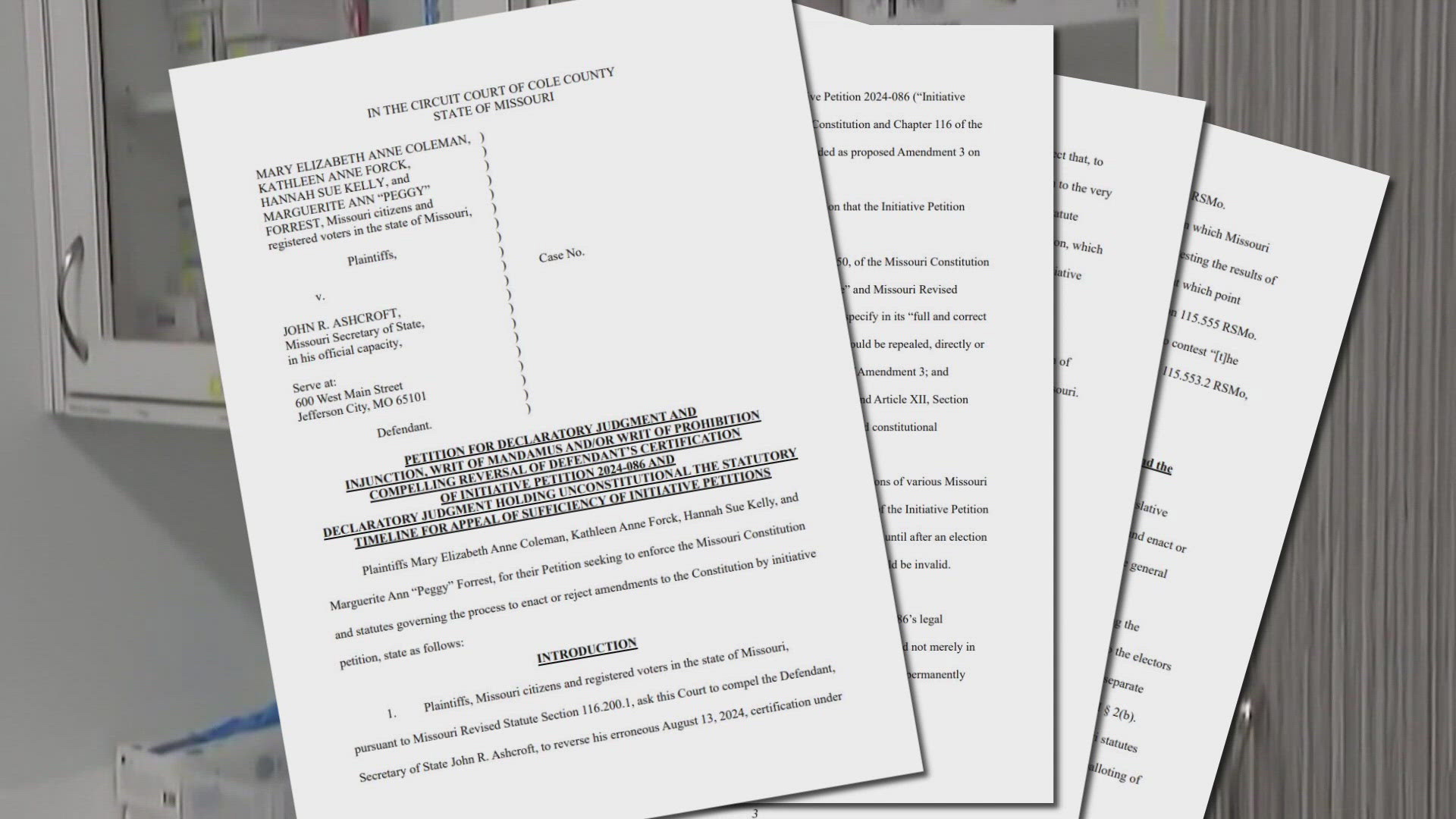JEFFERSON CITY, Mo. — Less than three months before election day, a lawsuit hopes to remove a proposed amendment from the ballot. Two Missouri legislators and two abortion activists brought a lawsuit forward with the assistance of the Thomas More Society, which is a Catholic public-interest law firm.
The lawsuit first called for Secretary of State Jay Ashcroft to reverse the certification of Amendment 3, which would legalize abortion up until the point of fetal viability. The lawsuit alleges the amendment language fails to specify what laws would be changed if the amendment passes.
The two lawmakers involved in the lawsuit includes State Sen. Mary Elizabeth Coleman, and State Rep. Hannah Kelly. Coleman was the author of the abortion ban that became law when the U.S. Supreme Court overturned Roe v. Wade. She is also listed as special counsel for the Thomas More Society.
Lawyers with the non-profit law firm say the ballot language is unconstitutional.
"Missouri law requires this amendment to say what it covers and to stick to one subject at a time," Mary Catherine Martin, Senior Counsel for the Thomas More Society says.
Amendment 3 was certified after Missouri's initiative petition process. Through that process, citizens can propose amendments and collect signatures to have them added to the ballot. The Secretary of State has to check to ensure enough signatures were collected before certifying the proposed amendment.
RELATED: Missouri voters could face choice between continued abortion ban and new constitutional amendment
Missouri law does say that if you're circulating petitions for signatures, and the petition will delete something in the law, you put it in brackets. If the petition will add something to the constitution, then you underline it. The abortion petition did underline new language it would write into the Constitution. It did not explicitly in brackets outline each law that would possibly conflict with the amended Constitution.
Martin argues that the way the language would not just overrule Missouri's abortion ban, but it could lead to even more changes because of one specific line in the ballot language.
"(The amendment) says 'including, but not limited to,' Martin said. "They say all matters relating to reproductive health care. Now, reproductive health care itself is a category that receives a different definition no matter whom you ask currently."
The Thomas More Society argues that the amendment could eventually apply to things like gender affirming care and IVF. Martin says framing the language this way would actually put the power in a judge's hand.
"It's voters' responsibility and privilege to vote for individual issues one at a time and not hand it over to judges never to be voted on again." Martin added, "We're really voting when we vote for this to never vote again."
The lawsuit also challenges the initiative petition process. It alleges that any amendment proposal gathered under the process should not be included on the ballot, calling it "insufficient." An amendment to legalize sports betting and and efforts to raise the minimum wage and provide paid sick leave are also on the ballot this November.
5 On Your Side reached out to Missourians for Constitutional Freedom, the group campaigning for the abortion amendment, asking for its reaction to the lawsuit. They have not responded.
Read the full lawsuit here.
Read the full amendment here.

